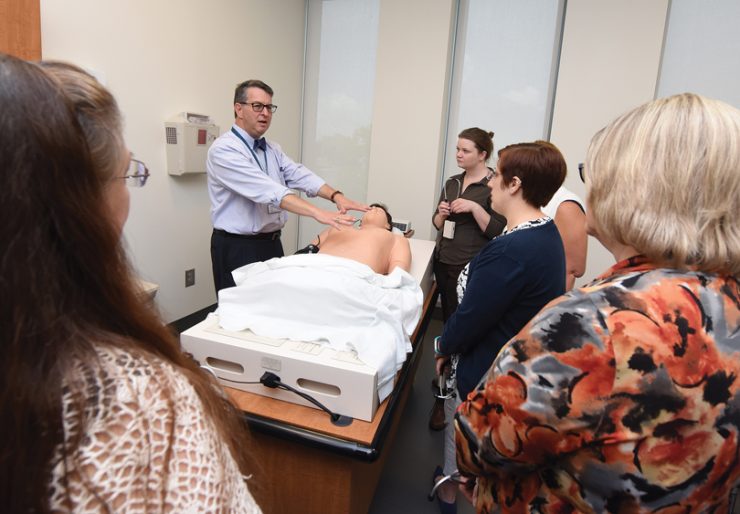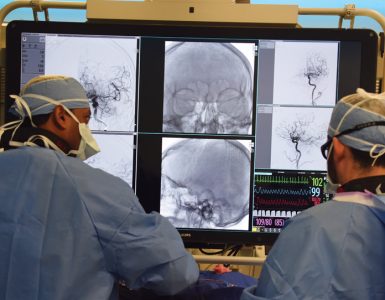Great students, talented faculty and invested patients all contribute to the creation and development of young physicians. At the Medical College of Georgia, we are incredibly fortunate to have all three.
Dr. Kelli Braun, MCG’s associate dean for admissions and a 2004 MCG graduate, and the admissions committee work each year toward their mission to recruit and matriculate the best possible class of students for MCG. Our admissions team has been incredibly successful. For the last several years, we have recruited the most academically talented and diverse classes that MCG has seen. Once they matriculate, these students contribute significantly to the fabric of our school. They are excelling in incredible ways.
Physicians-in-training, both students and residents, could not develop professionally without a close partnership and relationship with the patients they serve. It is through patient care experiences in the educational environment that our students learn critical skills, clinical reasoning, empathy and knowledge of the health care system. These experiences and their associated learning provide a framework that lasts a lifetime.
The faculty serve as guides and mentors in this process. MCG is fortunate to have a cadre of incredibly talented faculty who care deeply about the growth and development of our students. However, as MCG is one of the nation’s largest medical schools in terms of student numbers, proportionately, our faculty size is smaller.
Several years ago in noting this anomaly, I worked with the dean’s office to develop a proposal for additional state funding and support of new educator faculty. Over two years, we were able to secure $5.7 million in recurring state funds in support of new faculty educator positions. This provided MCG an enormous opportunity.
Over the first two years after receiving these funds, we successfully recruited 20 new faculty educators using a novel partnership between a college wide search committee and departmental chairs/departmental search committees to expeditiously select talented educators.
Now that the first 20 individuals have arrived at MCG, we have divided them into niche groups so that we can focus on strategic educational initiatives for the college:
• Asynchronous Learning and Simulation
• Diagnostic Reasoning and Value-Based Practice
• Public, Population and Global Health
These groups, mentored and organized by Dr. Ralph Gillies, associate dean for faculty development, and members of the Educational Innovation Institute, are beginning to plan curricula and collaborative educational research projects.
Today, we are at the beginning of these projects. If successful, several years from now, MCG will be recognized for its educational efforts in simulation, high-quality online asynchronous learning, value-based care, clinical reasoning and population health.
We have recruited about 40 percent of the educators planned through these efforts and will continue recruitment in the upcoming years. Our students, residents and the communities we serve will hopefully benefit from the work of these educators.
A magic formula? Students, patients and all of our faculty, including this new educator cohort — along with the many basic scientists and clinicians who already serve on our faculty — together are contributing to the creation of the best possible physicians to care for us, our families and our communities.
Footnote: Near press time, we learned that Dr. Wallach had accepted a position at Indiana University School of Medicine as executive associate dean for education and institutional improvement and executive vice president for education at IU Health. We congratulate Dr. Wallach on the new position he will assume in February and thank him for his many contributions to MCG and medical education.









